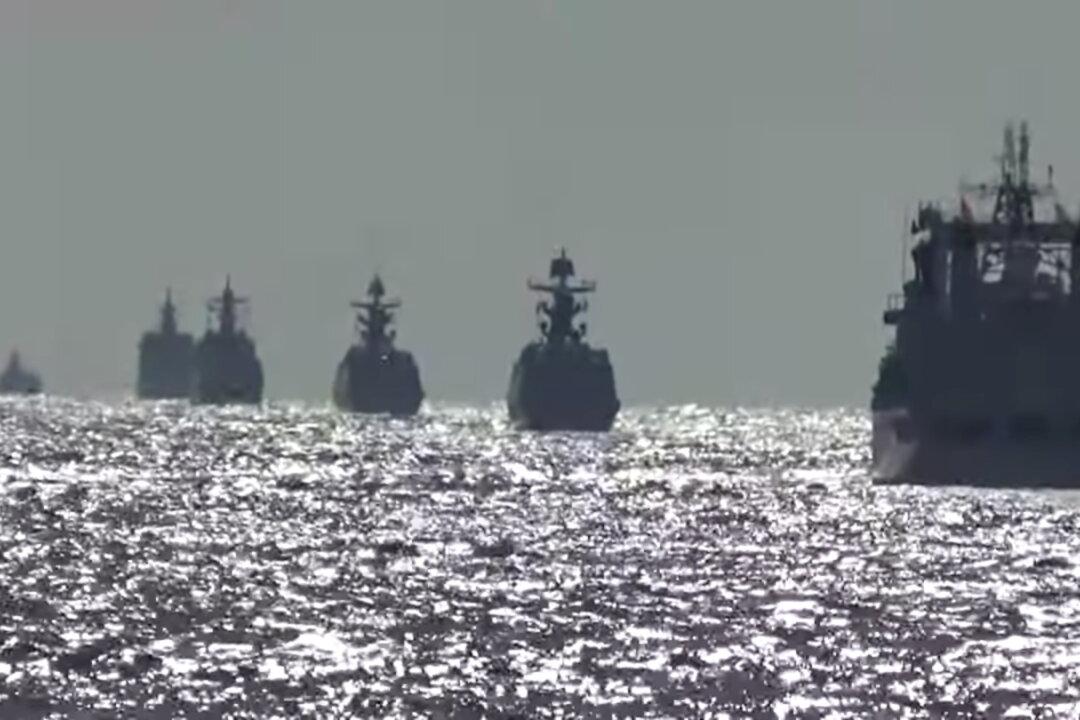China and Russia conducted joint military drills in 2022 on a larger scale than they did two decades ago, according to a Bloomberg report on July 15, raising concerns about a potential escalation of tensions.
The two countries held six joint military drills last year, the highest number tracked in the past 20 years, Bloomberg reported, citing data during that time frame from the U.S. National Defense University’s Center for the Study of Chinese Military Affairs.





